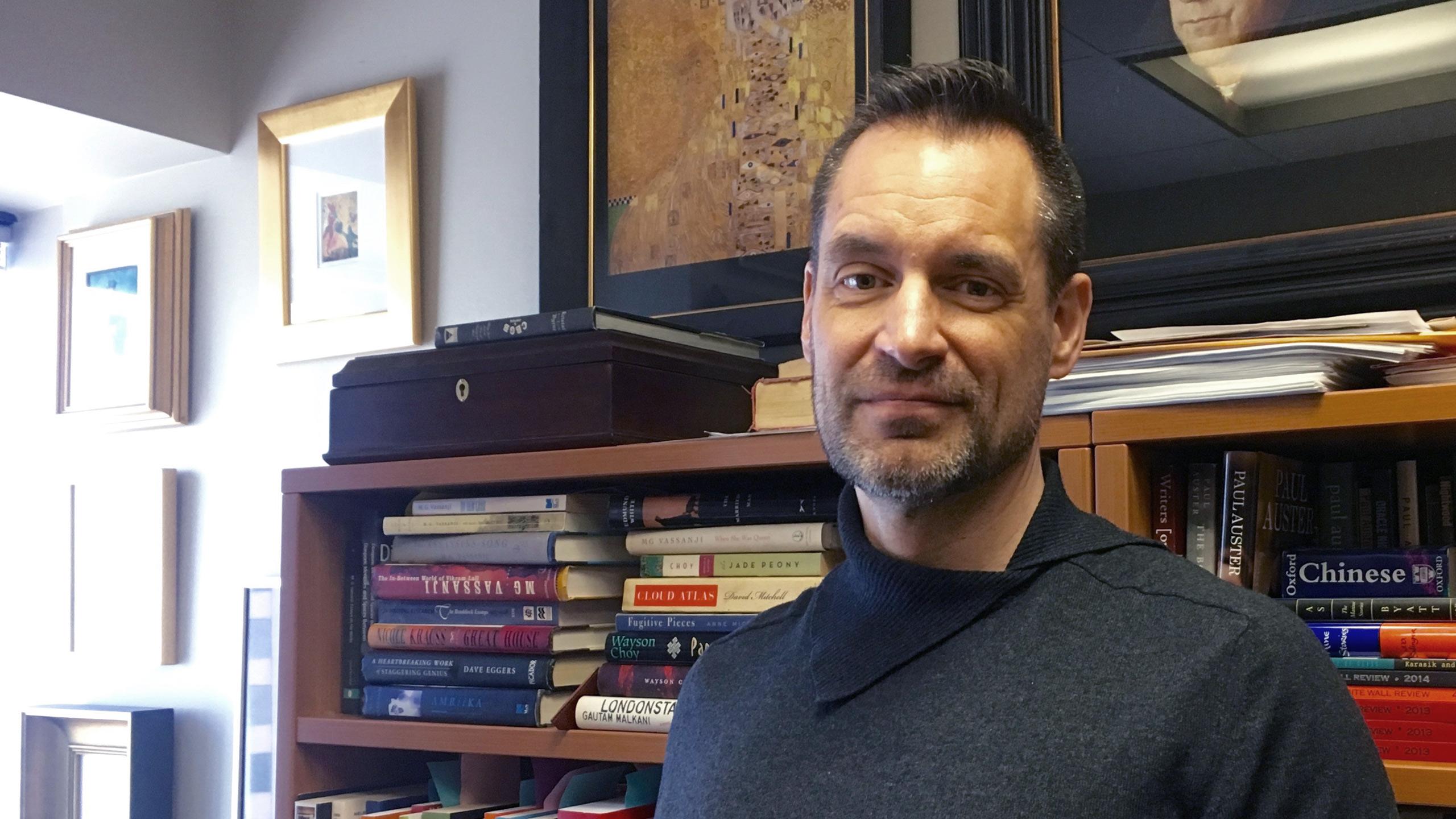By Emma Sandri
By his first-year of university, Jonathan Rollins knew exactly what he wanted to do with the rest of his life.
“As one of my electives I took an English course and loved it so much and liked what the professor was doing with his class so much that I switched majors,” said Rollins. “I knew this is what I want to do.”
Rollins has been teaching gender studies and literature at Ryerson, in some form or another, for at least six years.
Initially, the class was a project assigned to him by the chair of the English department after another professor was unable to teach the course.
At the time, Rollins had studied women’s writing and feminist approaches to literature in graduate school but not trans-studies or gender-studies. So he felt that he “needed to do some research,” before standing in front of a group of students. While having to develop his own course, simultaneously, Rollins was in the process of coming out.
“I was married for twenty-years, our relationship ended and I came out as bisexual,” said Rollins. “And in articulating that process to myself I found a lot of helpful ideas and language in the theory I was reading.”
Since taking on this field of teaching, Rollins has consistently tried to find connections between students’ lives and the literary works covered in his class. To Rollins, the critical thinking and skills that students develop in English have limitless applications.
“English isn’t an important discipline simply because it allows you to read a novel properly or answer an exam question properly. It’s about acquiring a kind of critical life skills and reading life, not just reading novels, everything is a text,” said Rollins. “It’s not just an academic thing that we’re doing.”
His practice of finding connections between literary studies and real-life were inspired by the teaching styles of his favourite professors and by his background in comparative literature.
“I’ve had moments where I’ve cried in front of a classroom because all of a sudden what we were talking about resonated so deeply with my own life”
However, the real-life connections Rollins uses may be very different from what traditional English students expect.
“I knew a lot of my students in sex and gender were following the season this year and so I found something that overlapped,” said Rollins on his use of the reality-competition show.
“There was an issue that come up a couple of weeks ago, an interview with RuPaul in The Guardian, where he talked about trans-individuals and trans-identity, and women and their relationship with drag. I thought, well this speaks to what we are talking about in class, and its something that’s current and it’s something that connects beyond the classroom.”
Rollins’ fast-paced and connective teaching-style is a favourite among students, who have given him an extremely high score on ratemyprofessors.com, with 100 per cent of students saying they would take his class again.
However, despite being given the coveted spicy pepper, Rollins tries to stay away from the website altogether.
“Someone made a joke about it, so I thought I should probably see what’s on there,” said Rollins.
Rollins describes himself as shy and introverted, a fact which may surprise his students.
“It was a surprise to find teaching so rewarding and so exciting because when I was growing up I never really thought what I wanted to do with my life was standing up in front of a lot of people and talk to them.”
“The people [in Toronto] and the diversity of the people here is what’s really fascinating and what gives me a sense of belonging”
As a high-school student, Rollins was a self-professed drama-kid who hung out with other teenagers who shared his love for alternative music.
“I was really into punk, when it wasn’t mainstream. My grade 13 photo mysteriously went missing and there’s no graduating photo for me because I had a mohawk and the vice-principle didn’t like that […] we created our own community and our own sense of belonging with each other because we were different kids.”
Along with his theatre-class friends, Rollins put on Samuel Beckett play during his formative years. He liked the experimental nature of Beckett’s writing and it was something which initially drew him to literature.
While Rollins no longer rocks a mohawk, he still loves alternative music with the genre making up over half of his “eclectic” collection.
The professor also like travelling and photography, keeping his Instagram account up to date with the latest pictures he takes—all on his phone.
“I like being able to take something serendipitously.”












Leave a Reply